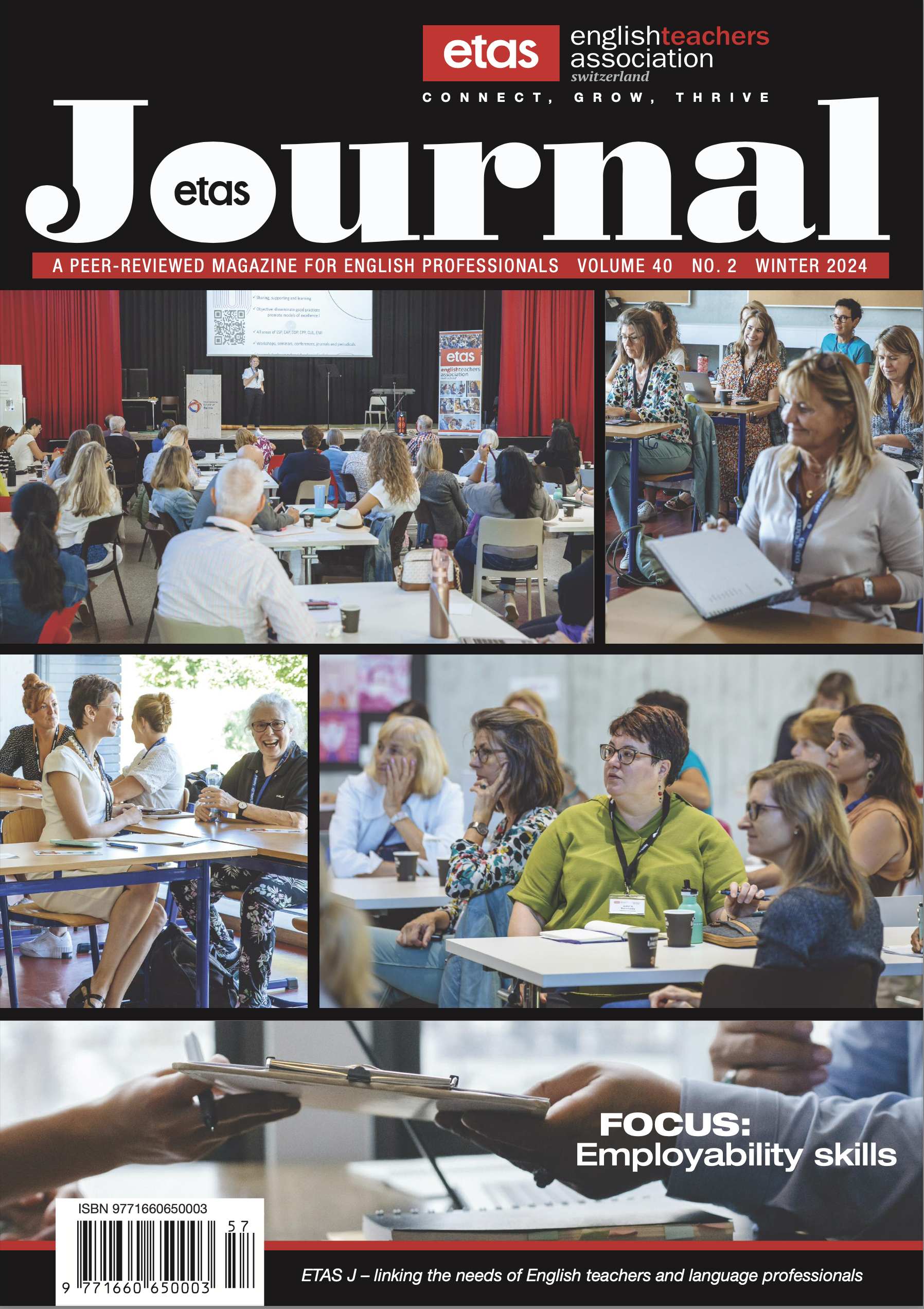Winter 2024

The world of ESL is evolving rapidly, reflecting learners’ changing needs and aspirations. This is especially true in two of the largest growth areas: young learners and English for specific purposes. English is increasingly taught as an essential skill in both areas, and one significant shift in ESL teaching within university settings is the transition from predominantly academic business English skills to a focus on employability skills. It is an approach that is having a profound impact on the teaching of academic English and what might be termed general English. Teachers of all age groups are adopting a more task-based approach that reflects the importance of teaching real-world skills in global English contexts rather than concentrating on English as used predominantly in English-speaking countries. This edition’s Focus is on employability skills (for both teachers and learners).
Table of Contents
6 President’s message
7 From the Editor’s desk
8 Call for articles and reviews
10 ETAS news
11 Ask Alex
12 Types of text-based language teaching materials that generative AI does well and not so well • Steve Lander
14 Gamification in the classroom • Samvidha Srinath
16 Exclusive language ideology and solutions for inclusive language classes • Francesco Screti
18 Exploring the efficacy of home-based methods for
enhancing English pronunciation proficiency among students • Christopher Hunt
20 Polyphonic situations – Contexts and their voices • Daniel Costa
FOCUS • Employability skills
23 Self-employability skills: The skills you need to run your own business successfully • Rachael Roberts
25 How to write for today’s readers • Carol Waites
28 “Being exclusive”: Teaching students to analyze identities across languages, cultures, and borders • Olena Marina
30 University vs eikaiwa teaching in Japan • Pak Man Au
32 A question of necessity, purely and simply • Agnès Huyton
34 Let employers tALK. Boosting students’ employability • Aleksandra Łuczak
A CLASS ACT
38 Integrating employability skills into legal English teaching • Natasha Costello and Louise Kulbicki
THE INTERVIEW
40 Growing together: Insights from the inside
Interview with Rumana Yasin • Interviewer: Leanne Hayes
CONFERENCE HIGHLIGHTS
42 Introduction • Sonja Vigneswaren and Leanne Hayes, National Events organizers 43 A bag of lexis • Marco Abbondio, Sandra Gianinazzi, and Nicola Webster
43 ESP courses at a university: Not always what you expect!
- A panel discussion with Barbara Althaus, Guy Walker, and Sylvia Goetze
44 The future is now: Developing skills for career success • Anna Bennett
44 L is for learner: Teaching from the learner’s perspective • Natasha Costello
45 Learning strategies: What & why • Rachael Harris
46 Experiments with flipping CELTA courses • Judie Hudson
47 AI in ELT – What can it do? • Steve Lander
47 Talent or grit? • Olaf Lenders
48 For independent teachers: What’s your line? • Dorinda Maio-Phillips
49 Working in international teams: What can we do better? • Ian McMaster
49 Seeing is believing – Maximizing the benefits of video-based peer observation
for ESP teachers • Cecilia Nobre
50 Teaching writing skills to today’s adult professionals • Carol Waites
51 A beginner’s guide to podcasting: Three steps to recording • Laura Wilkes
52 TESOL Pop’s special episode of the ETAS PD Day • Laura Wilkes
MEET THE VOLUNTEERS
53 Introduction • Carol Waites
RESOURCES
56 Introduction to resources • Carol Waites BOOK REVIEW
57 How Languages are Learned – Fifth Edition • Patsy M. Lightbown and Nina Spada
DIGITAL TOOLS REVIEWS
58 AI-powered language teaching • Jo Gakonga
Login to view PDF of Journal
